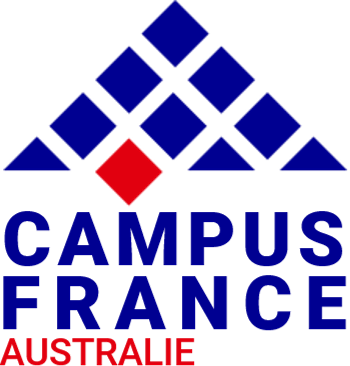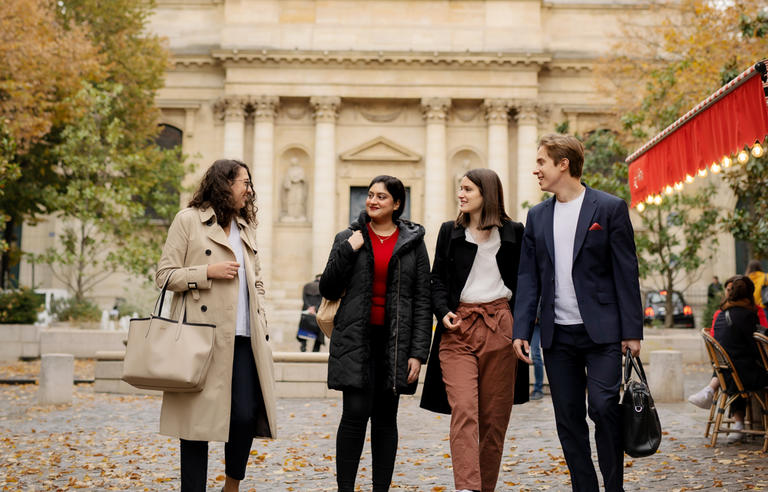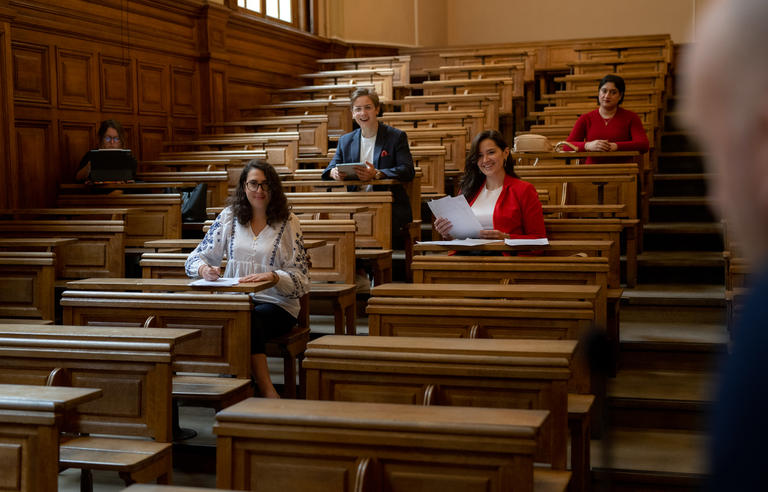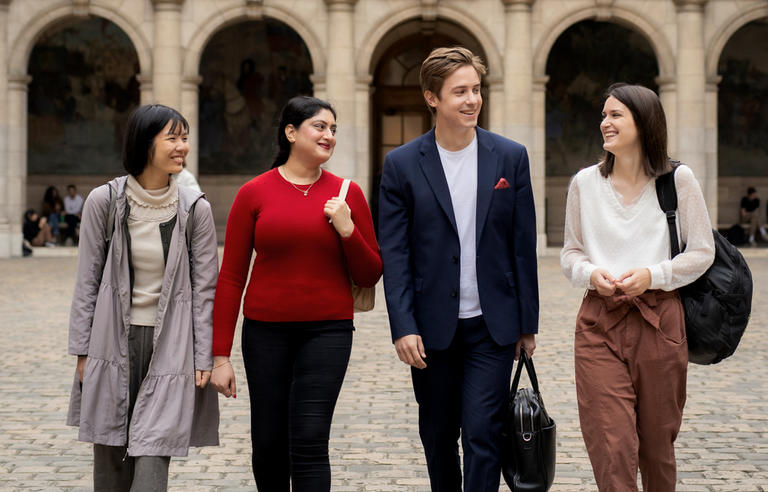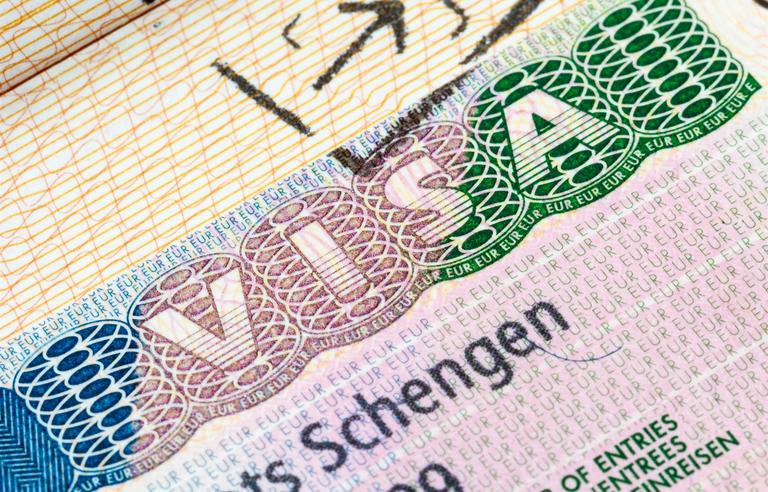The French higher education system uses the LMD framework, which differs from that which Australians may be used to.
TABLE OF CONTENTS
Overview
The different types of institutions
The LMD system
French degrees and equivalences
Level of French required for foreign students
Overview
France's excellence in higher education and research is widely acknowledged around the world. Numerous French universities and Grandes Ecoles rank highly in the most reputable international rankings, such as the Times Higher Education, the Financial Times ranking, the QS, the Shanghai ranking and the European Union’s U-Multirank.
This renown is in part due to the exceptional achievements of French researchers. With thirteen Fields Medals, France is second in the world in mathematics. It has also had sixty-two Nobel Prize winners, including Marie Curie, the first woman to receive a Nobel Prize for Physics in 1903, and who in 1911 became the first researcher in the world to obtain a second, this time for Chemistry.
A diversified higher education offer
12% of France's 2.5 million students come from abroad. All of them benefit from highly diversified training, and are enrolled in every field, at every level.
There are four main categories of higher education institutions in France: the public universities and research institutions, the grandes écoles (which include France’s prestigious schools of business and engineering), the schools of art and architecture, and the specialised schools.
There are more than 3,500 public and private institutions of higher education in France:
- 72 universities,
- 25 multi-institute campuses,
- 271 Doctoral schools,
- 227 engineering schools authorised to award the title of Engineer,
- 220 business and management schools,
- 45 post-secondary public schools of art,
- 22 schools of architecture,
- and 3000 private schools and institutes.
More than 1,200 classes are provided in English. You can find them in the catalogue Programs taught in English. Short programmes that combine French learning and cultural visits are also offered to foreign students. They are detailed in the catalogue of short programmes.
There is also more and more French training offered online and by correspondance (MOOC, etc). The French online course platform FUN provides nearly 300 courses from over 80 institutes, with around one million enrolments.
A tight academic schedule
In France, the academic year begins in September or October, and is punctuated by holidays, including two weeks at Christmas, depending on the institution and program. At the end of the first semester, classes are briefly interrupted for exams. The summer holidays start in May or June at the end of the second semester exams. In general, these holidays last at least two months.
Certifying academic knowledge
There are two ways that knowledge is tested in the French higher education system. Ongoing assessment evaluates what has been learned throughout the year, with regular testing in each subject matter. There are exams given twice per year, at the end of each semester, for all subjects.
Class formats in higher education in France
In French universities, instructors and researchers give students two types of classes:
- Lectures (cours magistraux): a professor presents a subject to students in an amphitheatre and between 100 and 1000 people. These non-mandatory classes are often written up and handed out by the instructors to students in the form of pamphlets, which can prove very handy when it comes time to revise for exams at the end of the semester;
- Tutorials (TD - travaux dirigés) and practical or lab work (TP- travaux pratiques): these mandatory classes are for smaller groups in complement to the lectures, with the intention of applying and deepening theoretical understanding. Company internships may also be required in addition to tutorials and practical work.
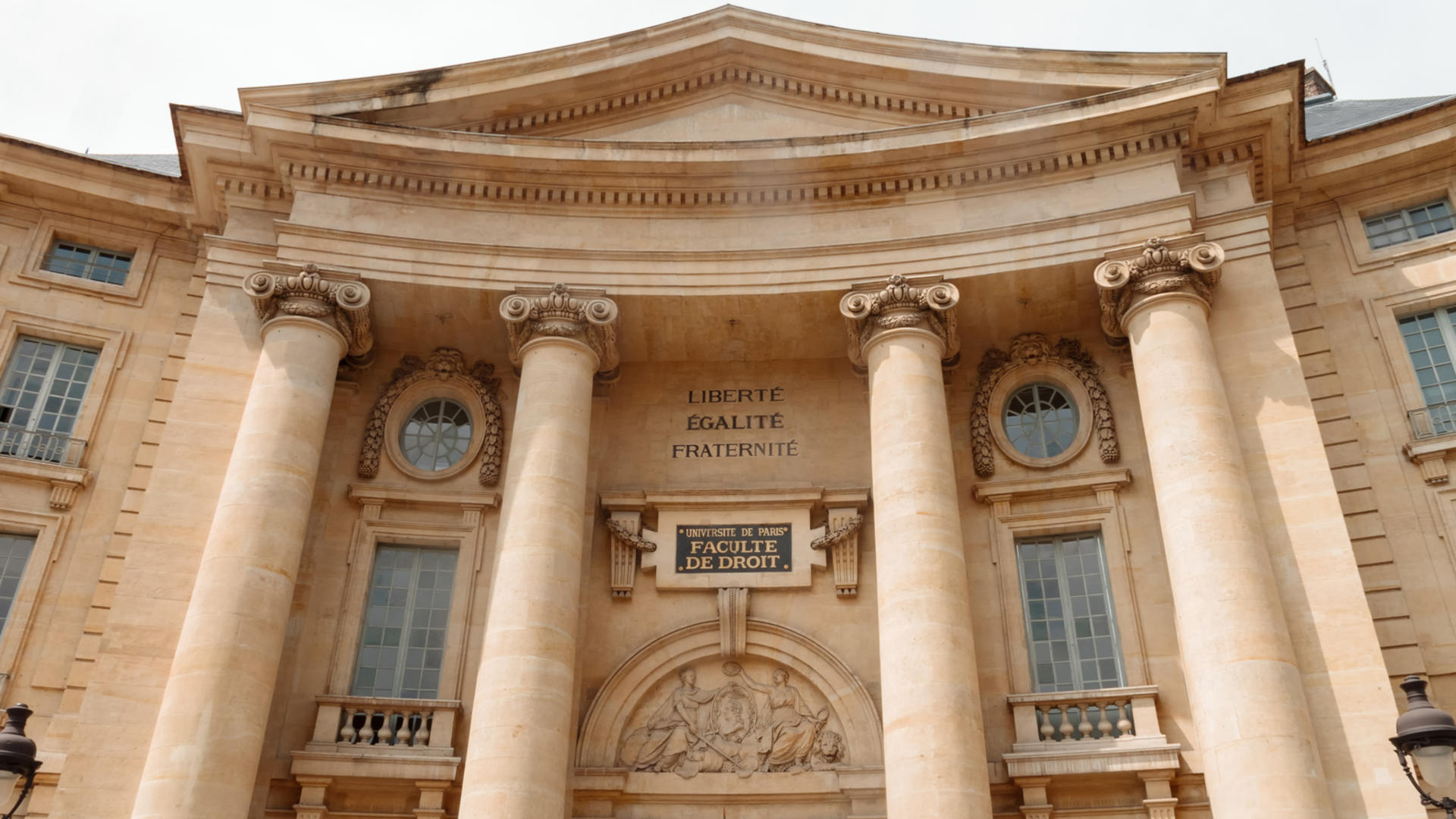
The three main categories of higher education institutions in France are public universities, Grandes Écoles (which include France's prestigious schools of engineering and business) and Schools of Art and Architecture.
Public universities: higher education for all
Of the 2.2 million students in the French higher education system, 80% attend the country’s public universities, which are funded by the national government and well spread-out across the nation. These universities include some of France’s oldest and most prestigious institutions, offering academic, technical and professional degree programs in all disciplines and at all levels. Universities receive 75% of the foreign students who pick France for their tertiary education.
Unlike major English-speaking countries, in France private institutions account for a relatively small share of tertiary enrolments (less than 17%). All of the nation’s comprehensive universities are public. They award national diplomas, providing assurance of a uniform level of educational quality regardless of where they are earned. Everyone who has a high school diploma or equivalent can enrol in first year. The universities offer programs in all disciplines, including sciences (mathematics, chemistry, physics, biology), technology (computer science, engineering, electrotechnics, materials), literature, languages, arts, social sciences, law, economics, business, health and medicine, and sport sciences.
The universities offer programs at every level: the undergraduate degree called a licence (3 years), masters (5 years), and doctorate (8 years).
Some of them have two-year technical program to prepare for the national Brevet de technicien supérieur (BTS) or University Diploma in Technology (DUT). These are selective vocational training courses designed to prepare students for technical professions after two years of post-baccalaureate studies. For certain specialities, a test or a motivational interview is sometimes organised.
Research - a key function of the universities
As the primary center of research and training in the basic sciences, the universities ensure that their degree programs stay ahead of the curve in basic knowledge and technology.
The international recognition of Fields Medals and Nobel Prizes accorded to French researchers attests to the universities’ devotion to knowledge.
More than 250 Doctoral departments staffed by 100,000 scholars and researchers provide research training in close cooperation with more than 1,200 research laboratories. The departments confer more than 11,000 doctorates each year.
French Doctoral departments have always been open to international researchers, and 42% of doctoral candidates are from outside France.
The Grandes Ecoles: the French culture of excellence
France's renowned Grandes Ecoles are very selective, specialised schools, which are much smaller than the large public universities. They train students for careers in engineering, management, higher education, research, and public administration, among other fields. 20% of foreign students are enrolled in a programme in the Grandes Ecoles, and much of the training is provided in English.
Unique to France, the system of Grandes Ecoles was set up in parallel with the university system at the beginning of the 19th century. The Grandes Ecoles offer top-quality education oriented toward practical problems. The Grandes Ecoles are highly selective; their degrees signify the completion of a rigorous program. Based on a competitive entry exam after two years of preparatory classes (CPGE), with an appropriate degree, or directly after high school for schools that have an integrated preparatory programme. Tuition and fees are higher than those for a university.
The two largest groups of Grandes Ecoles are schools of engineering and schools of management, but there are also the Écoles Normales Supérieures (ENS), the Instituts d’Etudes Politiques (IEP), veterinary schools, and other schools in a variety of fields.
All Grandes Ecoles offer five-year diplomas recognised by the government to be equivalent to the European Master.
Schools of art and applied arts
France has been home to many of the world’s greatest international artists and designers, and its 60 public art and design schools offer many exciting opportunities to take courses or earn a degree in art or architecture in France. There are directly overseen by the Ministry of Culture. Training in art, design and communication is provided in two steps of three or five years, with national degrees awarded on successful completion. Some also offer a third level of studies.
Each year, you can apply online for Art and Architecture higher schools in France via Campus Art.
Four highly-reputable public schools of art are directly overseen by the Ministry of Higher Education: Boulle, Olivier de Serres, Duperré and Estienne. They confer national degrees in graphic design, spatial design, fashion and arts and crafts.
Some private arts schools or schools that depend on Chambers of Commerce and Industry (CCI), award their own degrees. Some are registered in the Répertoire National des Certifications Professionnelles (RNCP - National Repertoire of Professional Certifications). These institutes of higher education in art and applied arts are very selective, and enrolment is done either through analysis of the applicant's file, by competitive entry exam and/or by interview.
The national schools of architecture
The Ecoles Nationales Supérieures d’Architecture (ENSA) form a network of 20 public schools overseen by both the Ministry of Culture and the Ministry of Higher education, Research and Innovation. Two other institutes, the Special School of Architecture (École Spéciale d’Architecture) and the National Institute of Applied Science (Institut National des Sciences Appliquées) in Strasbourg, are part of the same network and confer equivalent degrees.
Specialised schools and institutes: specific programmes
Nearly 3000 public and private institutes of higher education offer courses in specific sectors such as medicine, audio-visual, communication, journalism, fashion and design, agronomy, political science, etc. These courses generally last two to five years.
These institutes confer degrees and certificates that may or may not be recognised by the State (this may affect the ability to apply for a student visa). Admission to these specialised schools and institutes is based on a competitive entry exam or on the applicant's file.
The three-level organisation of post-secondary education is shared by most countries in the European Union. In France, LMD means Licence-Master-Doctorat (Bachelor's-Master's-Doctorate).
The level of studies in France "LMD" corresponds to the number of years of full-time tertiary studies completed:
- L1 = first year of undergraduate (bachelor) studies
- L2 = second year undergraduate (bachelor) studies
- L3 = third year of undergraduate (bachelor) studies
- M1 = first year of postgraduate studies (masters or bachelor honours year)
- M2 = second year of postgraduate studies
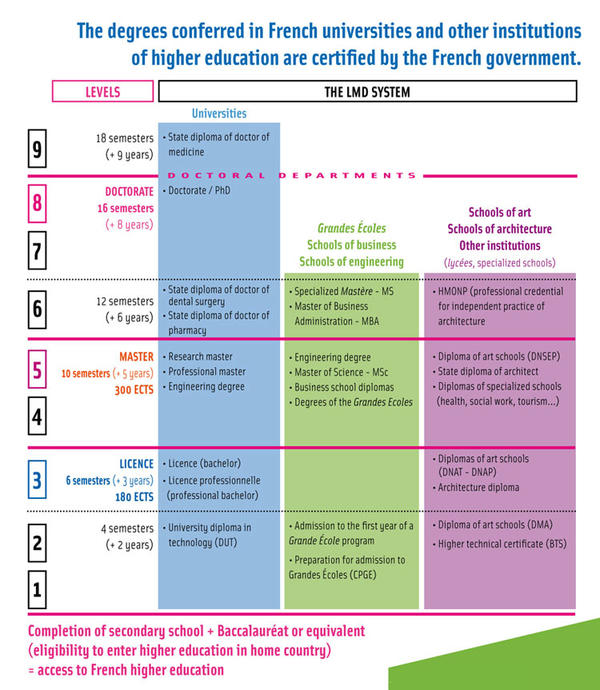
This system creates a standard for the recognition of each level of qualification across countries, which in turn facilitates student mobility within and outside Europe.
LMD degrees are obtained by successfully completing a set number of semesters. Each semester awards up to 30 ECTS (European Credits Transfer System) credits that are valid in, and can be transferred to other countries.
A Bachelor requires successful completion of three years/six semesters, resulting in 180 ECTS credits.
An additional two years/four semesters are required to obtain a Master (120 ECTS credits).
A Doctorate is awarded after successful completion of sixteen semesters and awards a total of 480 ECTS credits, in a minimum of three years of studies starting from the end of the Master.
Degrees recognised and guaranteed by the French government
The value of a French higher education diploma is guaranteed by the State when it's a French diploma, a degree certified by the French Ministry of Education ("diplôme visé") or titles registered on the RNCP (French Directory of Professional Certifications).
For various "Grandes Ecoles" and business/engineering schools, the quality of training and diplomas may also be certified by independent organisations issuing accreditations or labels.
Equivalences between French and foreign degrees
Each establishment defines its own admission criteria, according to the student's background and the programme requirements. Only the host establishment is authorised to accept or refuse an applicant. A mutual agreement between France and Australia on degree recognition makes requests for equivalence easier.
The ENIC-NARIC centre may provide an attestation certifying to the French value of a degree obtained from a foreign educational system. This attestation does not constitute an equivalence in and of itself, but some institutions of higher education require it. The procedure costs 70 Euros per request.
The ENIC-NARIC European network also lets you certify in your country the value of the years you spent studying in France.
Certifying professional experience
There are several structures that certify professional experience with the aim of enrolling in training or certifying a degree, diploma or level of qualification.
There are two distinct procedures: VAP 85 and VAE. The first enables direct access to training following certification of past experience. The second awards all or part of a degree by certifying the applicant's skills and knowledge.
The applicant must submit a dossier to a jury. In practice, these structures are frequently used by French higher education institutions to determine the level of an applicant with respect to the requirements of the programs they provide.
If you are taking a course taught in English, French language skills are not mandatory. Nonetheless, the institution in question may test your level of English.
If you are taking courses in French, remember that foreign students must present a document attesting to their level of French. You can obtain one by sitting an official French exam or test, such as the DELF, the DALF, the TCF or the TEF. The common reference is the Common European Framework of Reference for Languages (CEFR). Foreign students who have received a French high school diploma in an Agency for French Education Abroad (Agence pour l’Enseignement du Français à l’Etranger - AEFE) institution are exempt.
Level B1 or B2 is recommended for studying at the undergraduate and Master's level, and especially in the humanities and social sciences. Level B2 is required for admission to first year in the framework of the DAP (demande d’admission préalable - preliminary request for admission). Some French institutes of higher education may require a higher level, C1 or C2, for specific programs.

